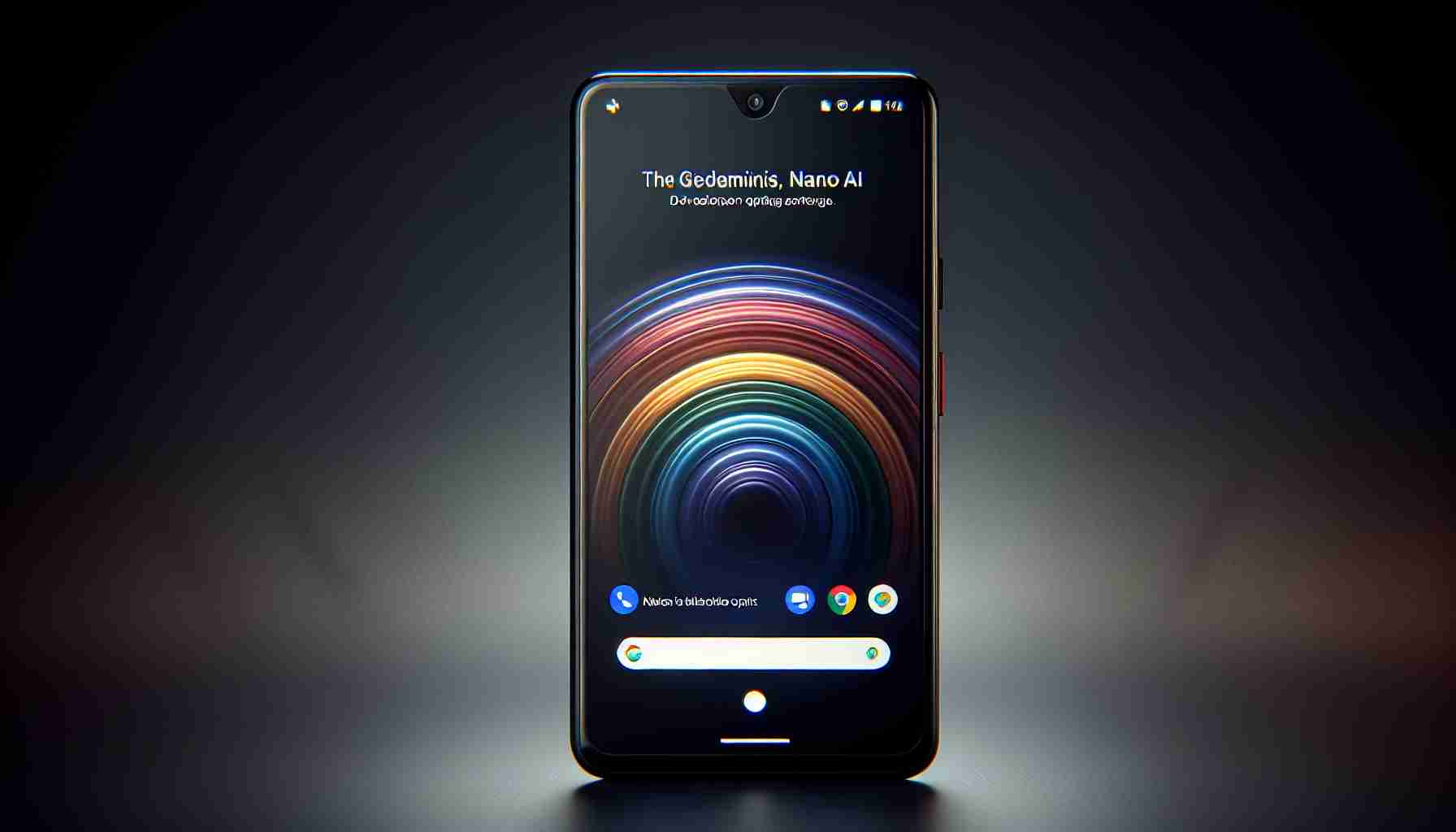Google recently announced that its Pixel 8 smartphone will be able to run the Gemini Nano AI model in the next Android release, although as a developer option. The decision to make it a developer option stems from hardware limitations on the smaller Pixel 8, which has 4GB less memory than the Pixel 8 Pro. Google doesn’t want to compromise the user experience on the smaller device, as it only has 8GB of RAM.
Seang Chau, Google’s VP of devices and services software, explained that having a large language model like Gemini Nano on a phone comes with trade-offs. Some AI models, such as the “smart reply” feature, need to be RAM-resident so that they are always loaded in memory. On the Pixel 8 Pro, smart reply can be turned on and off via the keyboard settings, but on the Pixel 8, the developer flag needs to be activated.
Running Gemini Nano could potentially occupy a significant amount of system memory, unlike an app that can be loaded and unloaded as needed. This suggests that future Android phones may need higher RAM capacities than the current baseline of 8GB. While the Galaxy S24 lineup also includes Gemini Nano with 8GB of RAM, Google’s previous explanation for not including it on the Pixel 8 due to hardware limitations remains confusing.
Despite Google’s push for AI, it’s important to consider whether users actually want these features on their phones. While generative AI applications like ChatGPT can be useful, the practicality of OS-level generative AI features is limited. Users may prefer to conserve memory for other apps instead of having a keyboard auto-generate replies. Ultimately, the decision to enable Gemini Nano as a developer option allows users to choose whether they want to utilize this AI model on their Pixel 8 device.
Frequently Asked Questions
1. What is the Gemini Nano AI model?
Gemini Nano is an AI model developed by Google that provides various language-based features on smartphones. It includes capabilities like generating auto-reply suggestions and other AI-driven functionalities.
2. Why is Gemini Nano only available as a developer option on the Pixel 8?
Due to hardware limitations on the Pixel 8, which has 4GB less memory compared to the Pixel 8 Pro, Google made the decision to release Gemini Nano on the smaller device as a developer option. This ensures that the user experience on the Pixel 8 is not compromised.
3. Can users turn off the Gemini Nano AI model on their Pixel 8?
Yes, users can choose to enable or disable the Gemini Nano AI model on their Pixel 8 device. However, on the Pixel 8, it can only be accessed via the hidden Developer Options menu in the settings.
4. Do all Android phones require higher RAM capacities to accommodate AI models like Gemini Nano?
There is a possibility that future Android phones may need higher RAM capacities beyond the current baseline of 8GB to support RAM-resident AI models like Gemini Nano. However, it ultimately depends on the specific hardware and software optimization implemented by smartphone manufacturers.
The introduction of Gemini Nano AI model in Google’s Pixel 8 smartphone highlights the growing presence of AI in the smartphone industry. AI models like Gemini Nano bring language-based features that enhance user experience and provide functionalities such as generating auto-reply suggestions.
However, due to hardware limitations, Google has made Gemini Nano available as a developer option on the Pixel 8. The smaller Pixel 8 has 4GB less memory than the Pixel 8 Pro, and Google wants to ensure that the user experience is not compromised. This decision shows that running AI models on smartphones comes with trade-offs and the need for hardware considerations.
Running Gemini Nano on a phone, particularly as a RAM-resident model, requires a significant amount of system memory. This raises the possibility that future Android phones might require higher RAM capacities beyond the current baseline of 8GB to support similar AI models.
It’s worth considering whether users truly desire these AI features on their smartphones. While generative AI applications can be useful, the practicality of OS-level generative AI functionalities may be limited. Users may prioritize conserving memory for other apps rather than having a keyboard auto-generate replies. The availability of Gemini Nano as a developer option on the Pixel 8 empowers users to decide whether they want to utilize this AI model on their device.
In summary, the integration of AI models like Gemini Nano in smartphones represents the industry’s ongoing advancements. Google’s decision to offer it as a developer option on the Pixel 8 addresses hardware limitations and ensures a satisfactory user experience. The potential need for higher RAM capacities in future Android phones reflects the evolving demands of AI integration in mobile devices. Users have the freedom to choose whether to enable or disable this AI model based on their preferences and needs.
For more information about the smartphone industry and AI integration, you can visit relevant websites such as:
– Gartner
– Statista
– IDC

